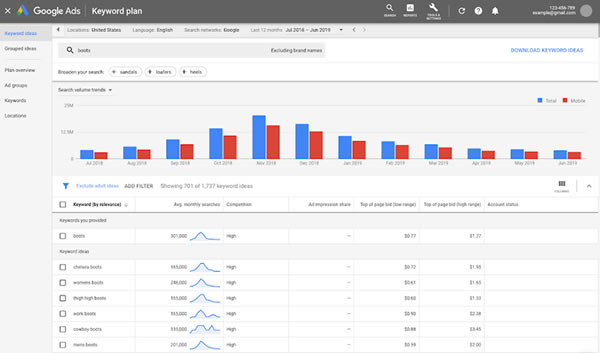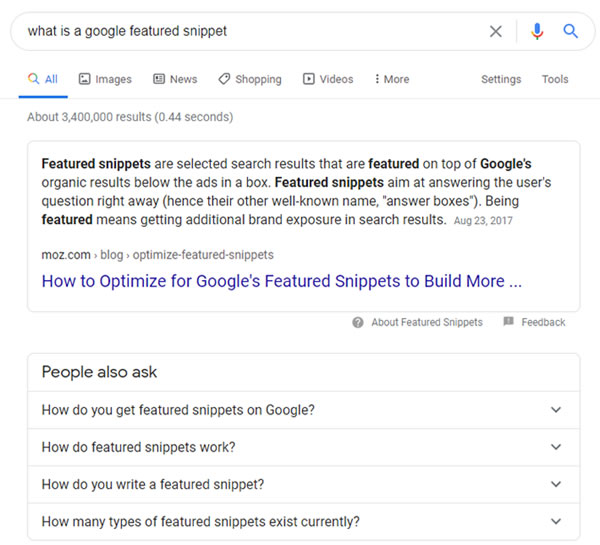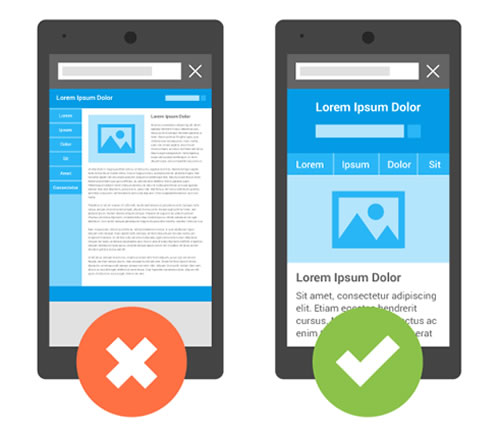
If your business seeks to generate maximum online search traffic (and what business doesn’t?), it’s essential that it ranks as highly as possible in Google search results and offers clear solutions to search queries. Your products and services may be a perfect fit for users who actively search for them; but if your business appears well down the list of search results – and you haven’t used keywords and keyword phrases that correlate to high-traffic searches – then conversions are much less likely to occur.
The exact makeup of Google’s algorithm is always changing. But as we move into 2021, seven best practices around search engine optimization (SEO) remain true and will continue to impact search rankings in the algorithm over time:
Content is king. We’ve all heard it before, and it remains as true today as ever. Google has always valued quality content—meaning content written for the reader, not the search crawler. However, that doesn’t mean you can’t influence the search ranking of your content with thoughtful planning.
Start with keyword research. There are a variety of tools available to determine how frequently certain keywords are searched. You can use in-house jargon to describe features/benefits of your products/services, but your customers may not be searching for them in the same way. Be sure to do your keyword research in advance to help ensure you speak your customers’/prospects’ language. If searchers tend to quickly return to Google’s search results page and click on alternate results after visiting your site, you are unlikely to maintain high search rankings for that given term.

Much of the “evergreen” (perennially current) content on our website continues to drive significant search traffic. There is a proven benefit to keeping those general content pieces up to date, if new legislation or other developments around them change. Specifically, Google may lower your search rankings over time if it sees visitors leaving your page for more up-to-date information from competitors.
Most searchers aren’t using just one- or two-word phrases. Rather, searches are often posed as a question to Google. So for your business, consider questions that you know are often asked by your customers and prospects. Those questions/answers make for great blog posts—and Google often rewards website content that answers questions directly, with higher search rankings and/or featured search placement (see the example below).

Your blog posts and other content pieces should be timely, relevant and in most cases, concise. They need not be thousand-word essays, but at the same time, very short content posts (e.g., under 300 words) may not garner prominent search positions on competitive search phrases.
Google rewards content that is structured in a way that’s easily indexed to its crawlers. This can include things like URL structure, internal links, directions in your robots.txt file, and more. The easiest way to spot errors in structure is by using a tool like Google Search Console.
Then there’s mobile indexing. In the past few years, Google has transitioned to a mobile-first index. That means it prioritizes content that is optimized for searchers on mobile devices since mobile currently generates the bulk of Google’s search traffic. As a result, if your site is not mobile-friendly or easily accessible via a mobile device, you are likely to suffer in the search rankings.

Duplicate content, or very similar content across your site, can be confusing to Google and make it more difficult to determine which page it should be sending search traffic to. For content that is the same or very similar across your site, consider using 301 redirects to that automatically send site visitors and search crawlers to the most relevant page.
Security is a ranking signal for Google, and one of the most common security signals for web browsers is the use of the HTTPS protocol. The general idea is that use of HTTPS throughout your site ensures any user data submitted through site (via a form) is secure. If you have not added HTTPS to your site yet, it could provide a search rankings boost and make site visitors more comfortable about performing transactions on your site.
Page titles are the first thing that a searcher sees on a search result page, and so they are given high priority by Google. This makes it essential to use proper headings (e.g., H2, H3) for pages throughout your site so Google understands the relative importance of content as a visitor proceeds down the page. Additionally, because search engines are unable to determine the context around images on your site, proper use of ALT text gives Google the ability to more easily index your images for search. For instance, if you have an image of a widget you produce on your site, you can use ALT text to specify which type of widget it is (size, color, shape, etc) to help it appear in the appropriate search result. Doing this for all product photography on a site is recommended.
Finally, adding Meta descriptions to the structure of each of your website pages adds detail to your listings on search result pages. Meta descriptions can be a compelling enticement to click on one link over another in search results.

Links have always been an important part of Google’s algorithm. As with business referrals, quality matters. A link from a highly respected site is more likely to improve your search rankings than a link from a low-traffic, relatively unknown site. Google also considers the quality of a visit to your site from its search results.
Questions about how to structure your SEO marketing program, or other digital marketing issues? Please contact us through our contact form or call Bob Goricki at 440-772-0182.

These Stories on SEO
Have lingering questions after checking us out? We’re here to help! And don’t worry—we won’t go into sales-stalking mode. So please feel comfortable filling out the form below and take us up on our offer to help.
About Us
Our Work
Contact
Strategic 7 Marketing
6685 Beta Drive
Cleveland, OH 44143
440.772.0186